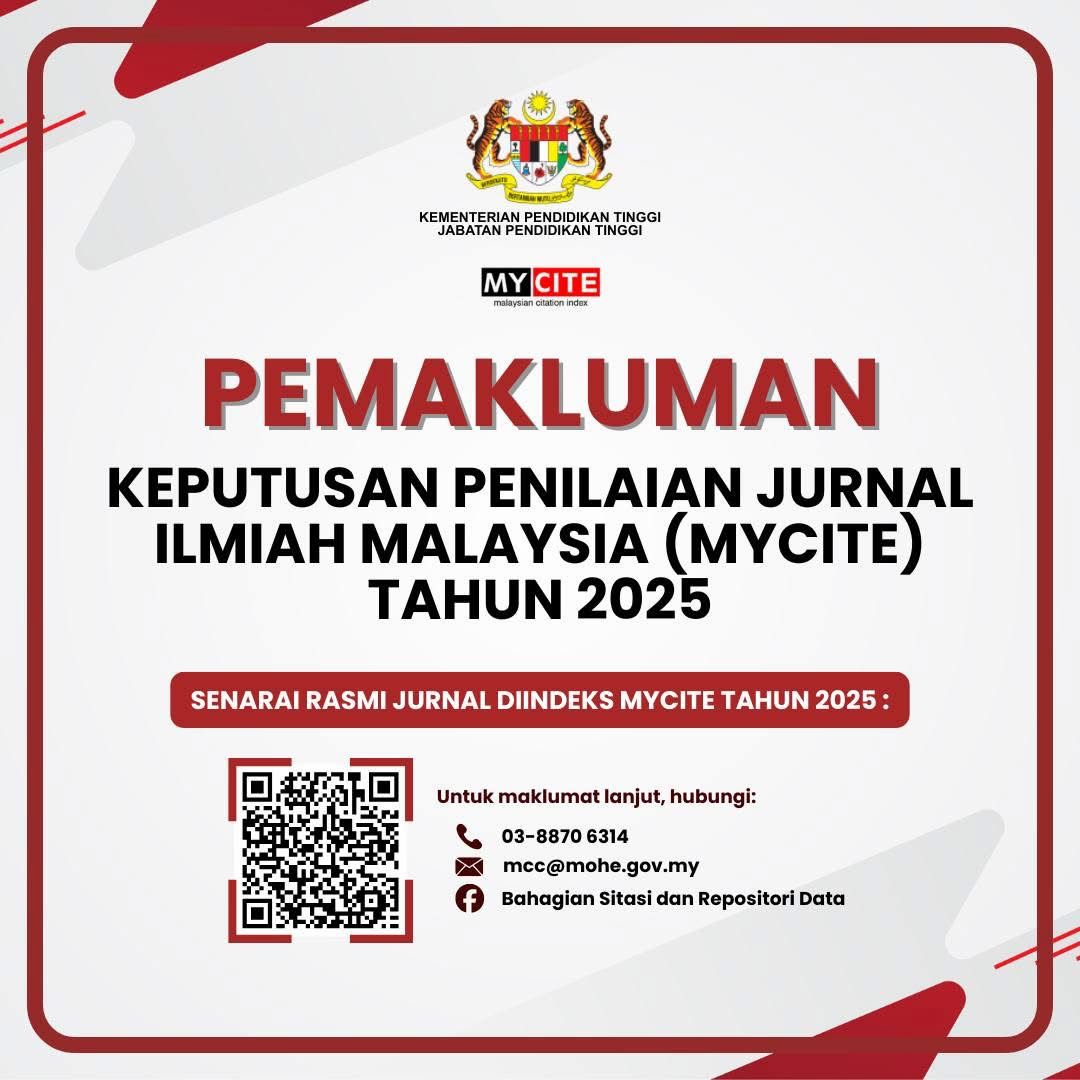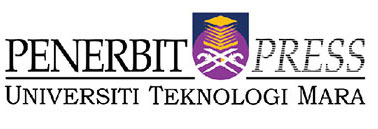Public Inclination Towards Waste Segregation Programme (A Case Study on the Effectiveness Of #Asingkan Campaign in Klang Valley)
DOI:
https://doi.org/10.24191/idealogy.v5i2.241Keywords:
Waste Segregation, Effectiveness, #Asingkan Campaign, Klang ValleyAbstract
This paper investigates the effectiveness of the #Asingkan Waste Segregation Campaign in Klang Valley area. In September 2015, the Urban Well-being, Housing and Local Government Ministry began enforcing Act 672 of the Solid Waste and Public Cleansing Management Act 2007. The Act makes it compulsory for residents to separate their solid wastes according to categories of paper, plastics and others or face fines between RM50 and RM500. This Segregation programme affects those living in Putrajaya and Kuala Lumpur, Johor, Malacca, Negeri Sembilan, Kedah, Perlis and Pahang. The main objective of this research is to investigate the awareness level of public towards waste segregation programme and analyse the effectiveness of #Asingkan campaign. Data from questionnaires and focus group discussions indicate that the waste segregation programme and the #Asingkan campaign are not running effectively. The Malaysian Government should find the right approach to educate and change the public’s attitude in order to make sure this programme successful.
Keywords: Waste Segregation, Effectiveness, #Asingkan Campaign, Klang Valley
References
Cilisos.my (2017). Jo-Lyn: It’s been a year since Malaysia started waste separation. Here’s how much we’ve progressed. Retrieved 30 May 2017 from https://cilisos.my/its-been-a-year-since-malaysia-started-waste-separation-how-are-we-doing-so-far/
CleanMalaysia. (2015). Waste Management in Malaysia: In the Dumps. Retrieved 16 Novermber 2016, from http://cleanmalaysia.com/2015/09/04/waste-management-in- malaysia-in-the-dumps/
Fatma Sabariah Alias, Latifah Abd Manaf, Mariani Ariffin, Sabrina Ho Abdullah (2018). Solid Waste Minimization in Malaysia. Pertanika Journal of Scholarly Research Reviews. PJSRR (2018) 4(3): 26-41. eISSN: 2462-2028
Freemalaysiatoday.com (2018). Rosli Khan: Why are we so far behind in waste management? Retrieved 20 December 2018 from https://www.freemalaysiatoday.com/category/opinion/2018/12/20/why-are-we-so-far-behind-in-waste-management/
Freemalaysiatoday.com (2019). Soo Wern Jun: Garbage separation drive turning out to be a wasted effort? Retrieved 6 January 2019 from
Greenchoices. (2016). Environmental Impacts. Retieved 16 November 2016, from
Hoornweg, Daniel; Bhada-Tata, Perinaz. 2012. What a Waste: A Global Review of Solid Waste Management. Urban development series;knowledge papers no. 15. World Bank, Washington, DC. © World Bank. https://openknowledge.worldbank.org/handle/10986/17388
Housseinpour, M., Mohamed, Z., Rezai, G., Shamsudin, M. N., & Ismail, A. L. (2015). How Go Green Campaign Effects on Malaysia Intention Towards Green Behaviour. Journal of Applied Sciences, 15, 939-933. Doi: 10.3923/jas.2015.929.933
https://pdfs.semanticscholar.org/8817/795ec8dad13746a02371caf5ce56220e0bb4.pdf?_ga=2.133314894.1335078058.1567697285-70757390.1567697285
https://www.freemalaysiatoday.com/category/nation/2019/01/06/garbage-separation-drive-turning-out-to-be-a-wasted-effort/
https://www.greenchoices.org/green-living/waste-recycling/environmental-impacts
Iwan Budhiarta, Chamhuri Siwar, Hassan Basri (2011). Current Status of Municipal Solid Waste Generation in Malaysia. International Journal on Advanced Science Engineering Information Technology. Vol. 2 (2012) No. 2 (ISSN: 2088-5334) pp16–21.
Kumari, S. (2016). Public Taking Solid Waste Separation Ruling Lightly. Promotional Portal of Ministry of Dosmestic Trade, Co-operatives and Consumerism. Retrieved 20 November 2016, from http://kpdnkk.bernama.com/featuresEn.php?id=1154590
Malay Mail (2015). Melissa Chi: Waste segregation: Start small, environmentalists urge the government. Retrieved 26 August 2015 from https://www.malaymail.com/news/malaysia/2015/08/26/waste-segregation-start-small-environmentalists-urge-the-government/958369
Malay Mail (2016). Jonathan Edward: Waste segregation enforcement starts today. Retrieved 1 June 2016 from https://www.malaymail.com/news/malaysia/2016/06/01/waste-segregation-enforcement-starts-today/1131527
Malay Mail (2016). Separate solid wastes: Compound enforcement begins in June. Retrieved 16 May 2016 from https://www.malaymail.com/news/malaysia/2016/05/16/separate-solid-wastes-compound-enforcement-begins-in-june/1121135
Malay Mail (2019). Ida Nadirah Ibrahim: Minister: We need two years before waste segregation can be implemented nationwide. Retrieved 15 January 2019 from https://www.malaymail.com/news/malaysia/2019/01/15/minister-we-need-two-years-before-waste-segregation-can-be-implemented-nati/1712920
Malay Mail (2019). Public awareness of solid waste segregation still not satisfactory, says deputy minister. Retrieved 24 July 2019 from https://www.malaymail.com/news/malaysia/2019/07/24/public-awareness-of-solid-waste-segregation-still-not-satisfactory-says-dep/1774411
Malaysiakini (2018). Nur Imani binti Abdullah: Time M'sians separated their solid waste at home. Retrieved 1 October 2018 from https://www.malaysiakini.com/letters/445518
Poskod.my. 6 Things to Know About Separating Your Trash. https://poskod.my/cheat-sheets/need-know-mandatory-waste-separation-scheme/
Rezai, G., Hosseinpour, M., Shamsudin, M. N., Ismail, A. L., & Sharifuddin, J. (2015). Effects of Go-Green Campaigns on Changing Attitudes Towards Green Behaviour. Pertanik Journals of Social Sciences and Humanities, 23(S), 77-92. Retrieved 20 November 2016, from http://www.pertanika.upm.edu.my/Pertanika%20PAPERS/ JSSH%20Vol.%2023%20(S)%20Jun.%202015/07%20JSSH%201356-2015.pdf
Tey, Jia Sin and Goh, Kai Chen and Kek, Sie Long and Goh (2013). Current practice of waste management system in Malaysia: Towards sustainable waste management.
The Star Online (2017). Low awareness on recycling among Malaysians. Retrieved 20 August 2017 from https://www.thestar.com.my/news/nation/2017/08/20/low-awareness-on-recycling-among-malaysians/
The Star Online (2018). Rulim: Green ways to manage waste. Retrieved 9 September 2018 from https://www.thestar.com.my/news/nation/2018/09/09/green-ways-to-manage-waste-swcorp-goes-for-green-technology-and-educating-the-young
Time Out (2016). Syarifah Syazana: How to separate your household waste: A guide If you’re confused about how and what you need to separate, here’s a handy guide. Retrieved 1 June 2016 from https://www.timeout.com/kuala-lumpur/things-to-do/how-to-separate-your-household-waste-a-guide
ZA Zainu, A. Songip. (2017). Policies, Challenges and Strategies for Municipapl Waste Management in Malaysia. Journal of Science, Technology and Innovation Policy; Vol 3, No 1 (2017): June 2017. (eISSN): 2550-2018 http://jostip.org/index.php/jostip/article/view/47
Downloads
Published
Issue
Section
License
UiTM Press (the Publisher) has agreed to publish the undersigned author’s paper in Idealogy Journal. The agreement is contingent upon the fulfilment of a number of requirements listed below.
1. The undersigned author warrants that the paper entitled below is original, that it is not in any way libellous or unlawful in Malaysia, that it does not infringe any copyright or other proprietary right. The undersigned hereby represents and warrants that he/she is the author of the paper, except for material that is clearly identified as to its original source, with permission notices from the copyright owners where required. The undersigned represents that he/she has the power and authority to sign and execute this agreement.
2. The undersigned author warrants that the paper entitled below has not been published elsewhere, and also it will not be submitted anywhere else for publication prior to acceptance/rejection by this Journal.
3. By submitting the paper entitled below, the undersigned author agrees to transfer the rights to publish and distribute the paper in an international e-journal (entitled above) to Publisher.
4. The undersigned author agrees to make a reasonable effort to conform to Publisher's submission guidelines and to liaise with the editor to ensure that the requirements of these guidelines are met to a reasonable degree.
5. The corresponding author signs for and accepts responsibility for releasing this material on behalf of any and all coauthors. This agreement is to be signed by at least one of the authors who has obtained the assent of the co-author(s) where applicable. After submission of this agreement signed by the corresponding author, changes of authorship or in the order of the authors listed will not be accepted.




